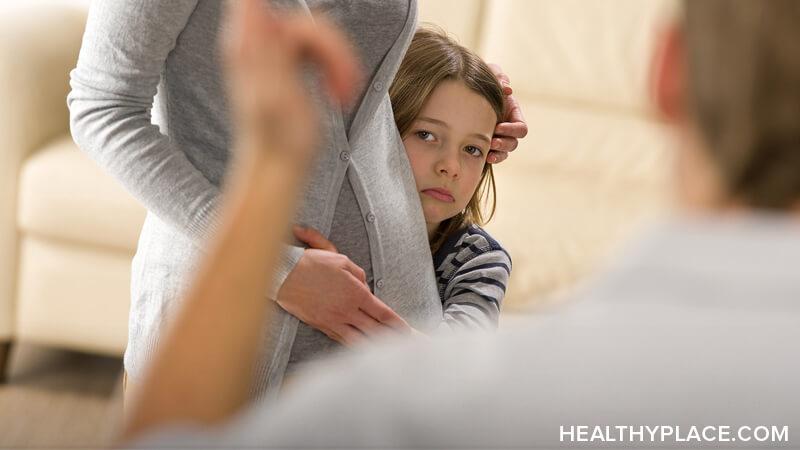Supporting the Children of Parents with Mental Illness

Mental illness can impact a family in many ways, and the children of parents with mental illness need loving support. Children are very sensitive and sometimes clue into differences in behavior that adults miss. As adults, we are often caught up with other concerns: our careers, finances or the latest Netflix series, to name a few. We sometimes forget to pay attention to those around us and may overlook subtle changes. Children, on the other hand, notice everything. I say this from experience: children of parents with mental illness see and feel all of it.
Mental Illness Is Confusing to the Children of Parents with Mental Illness
In between my husband’s psychiatric hospitalizations, we witnessed a particularly abnormal episode. The kids and I returned home from dance practice to find my husband pacing the room while muttering to himself. My son clung to me, refusing to be put down. My daughter immediately knew something was wrong. She hid in the kitchen with a terrified look on her face and asked, "What is wrong with daddy? Is he okay? Is he broken?"
This wasn't his first episode so I wasn’t shocked by what we saw. As a result, I was able to fully absorb my children’s reactions. I was horrified and heartbroken. How were such young, naïve children able to so easily observe that something was wrong and that Daddy wasn’t just playing a game? And what a sad question of is Daddy broken, I wanted to burst into tears. I bent down and gave her a hug. I asked, “Do you know how people get sick sometimes, like when you or your brother catch a cold? Well, right now Daddy is a little bit sick.”
A strange look appeared on her face as she said, “But he isn’t sneezing! I think maybe daddy has a little sick in his head!”
As strange as the moment was, with my husband muttering and pacing in the background, I laughed at her simple explanation. Then she said, “It’s okay Mommy. Daddy will get better. We just have to take care of him and get him some medicine.”
Again, such a simple answer. But it was the right answer. We just needed to take care of Daddy and help him with psychiatric medicine.
Teaching Children About Mental Illness
When my husband has a hard day, we play quietly and give him time and space. On such days, I remind my children that their father loves them deeply and would do anything for them even if he cannot show them at that moment. As caregivers of children of parents with mental illness, we must be aware of their needs. We must listen to them and try to explain what is happening as best we can. Guiding children through these trials will help them understand at that moment, and when they are grown, how to better support those who suffer from mental illness.
See also:
APA Reference
Law, M.
(2019, March 7). Supporting the Children of Parents with Mental Illness, HealthyPlace. Retrieved
on 2026, January 9 from https://www.healthyplace.com/blogs/mentalillnessinthefamily/2019/3/supporting-the-children-of-parents-with-mental-illness
Author: Megan Law
Thank you Megan. I love how your children have the chance to voice their feelings, opinions, and ideas. I think it makes them feel more a part of the situation in a positive way. They can become more compassionate towards others through this experience, and although it can be hard to watch them go through this I think it can be a good thing. I love your insight.
Rachel, thank you so much for your kind comment. It can definitely be hard to watch, but I completely agree that good things can come from it. It is very important to have everyone in the family be a part of the recovery process, especially since everyone is directly affected.